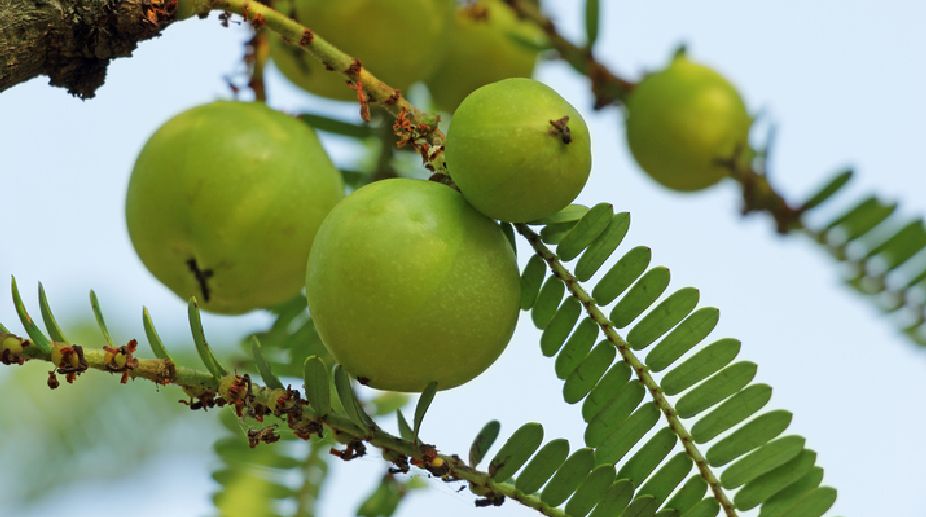Tomato Prices Soaring? Try These Cost-Effective Tomato Alternatives for Your Kitchen
Discover cost-effective alternatives to tomatoes amidst rising prices and add variety to your kitchen creations.
Apart from culinary use, for health and beauty, the Indian gooseberry has a spiritual significance

(Getty Images)
This Indian traditional wisdom has been handed down through generations—Mama’s favourite fruit for treating common ailments, Amla, the Indian gooseberry.
Amla is a rich source of Vitamin C, essential minerals and amino acids.
A proven health and beauty fruit, consumption of gooseberry helps in preventing and treating cough, cold and flu. It also strengthens the immune and digestive systems.
Advertisement
Amla hair oil and amla ka achaar or amla chutney are common products in Indian homes.
Also, gooseberry juice is a popular traditional drink. It is mostly consumed as a health drink.
If you are down under the weather this wet season, drink a warm glass of gooseberry juice daily till you recover.
Popping an amla or two daily can also help to improve the health of the skin and hair growth.
Apart from culinary use, for health and beauty, the Indian gooseberry has a spiritual significance.
In the Hindu religion, the amla tree is considered sacred and worshipped by many, as it is believed that god Vishnu dwells in it. In fact, amla is said to have grown from the drops of Amrit, meaning heavenly nectar that fell from the abode of gods. Hence, it has come to stay as a religious belief that the fruit can cure almost all types of health problems.
With such great spiritual significance, the shape of the Amalaki, an integral part of Indian temple architecture, is said to have been inspired by amla. Amalaka is a stone disk with ridges on the rim, atop a Shikhara, a temple’s main tower.
According to history, Emperor Ashoka was said to have parted half an Amalaka as a farewell gift to Buddhist Sanga. A stupa was built at the spot as a mark of the significant moment and remains as Amalaka stupa in Patna.
Legend also has it that a poor Brahmin lady once showered with wealth in return for an offering of a single amla to Mahalakshmi. Down South India, it is believed that Avvaiyar, an ancient female activist was gifted an amla by King Athiyaman, for long life.
Advertisement